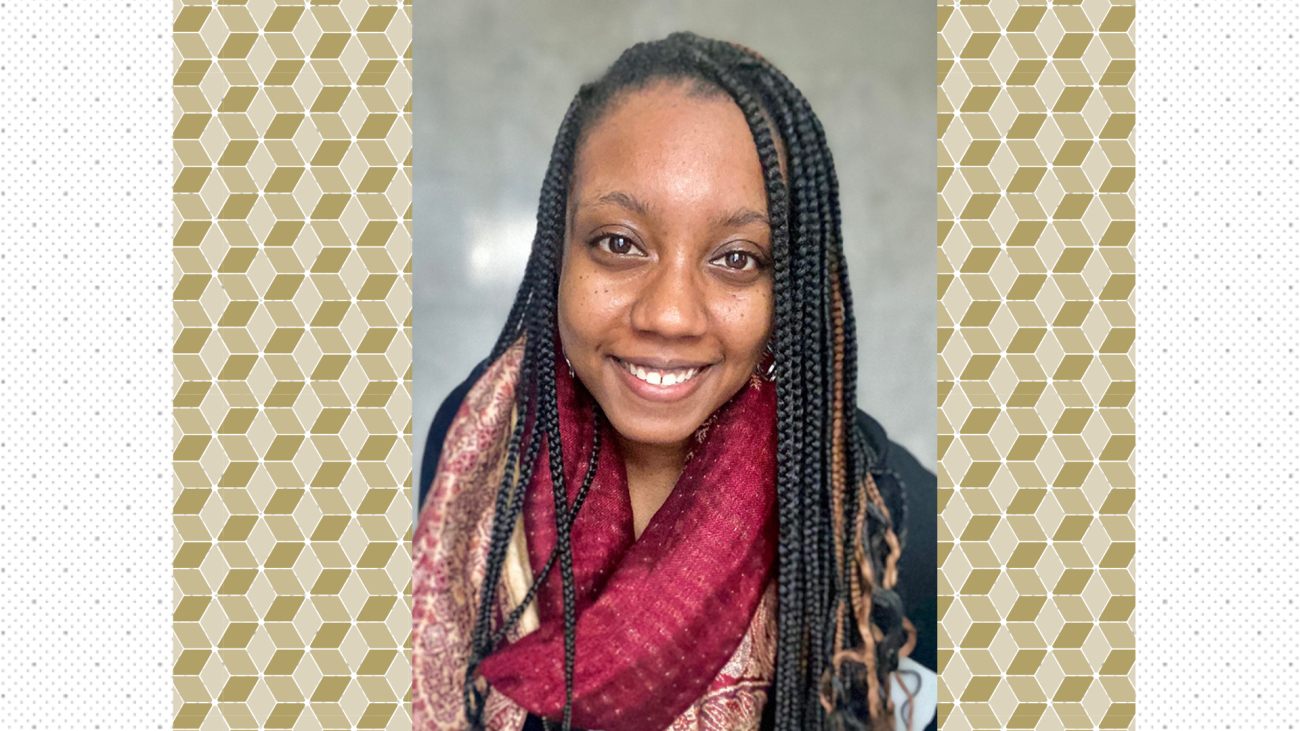BME assistant professor using Sloan Scholars Mentoring Network seed grant to support her lab's work
Simone Douglas-Green, an asst. professor at the Wallace H. Coulter Department of Biomedical Engineering, has recently been awarded the 2024 Sloan Scholars Mentoring Network (SSMN) seed grant.
This $10,000 award, the first independent funding for the Douglas-Green lab, will support her research on protein coronas — protein complexes that form when proteins are absorbed to the surface of nanoparticles.
“We’re excited about receiving the grant,” said Douglas-Green. “Sloan was integral to my career as a Ph.D. student, and now the SSMN Seed Grant is a catalyst for our research group’s first project.”
The grant was established specifically to support research. But the SSMN program, formed through a collaboration between the Social Science Research Council and the Alfred P. Sloan Foundation, does more than offer grants. It also provides workshops, mentoring, and networking opportunities to support scholars in their academic journey.
With this grant, the Douglas-Green lab will address the challenge of isolating and characterizing protein coronas on nanoparticles, particularly small ones like polyamidoamine (PAMAM) dendrimers, a class of nanoparticles which hold significant potential for drug delivery.
“Having the right tools and techniques to accurately study bio-nano interactions will make this endeavor possible, and our new group will be at the forefront in developing them,” said Douglas-Green.
What sets her research apart is her lab’s use of the electrophoresis process to characterize protein coronas. Building on her post-doctoral research at the Massachusetts Institute of Technology (MIT), Douglas-Green’s lab is employing a nondenaturing electrophoresis technique combined with mass spectrometry to separate and identify these tiny protein coronas.
Electrophoresis is a lab technique used to separate molecules, like proteins, based on their size and charge, helping scientists understand the composition and behavior of these proteins. When an electric current is applied, proteins move through a gel at different speeds depending on their size and charge, so researchers can analyze the types of proteins involved. The technique can be used to study nanoparticle-protein complexes on nanoparticles with smaller sizes and densities in ways that existing methods, like centrifugation or dynamic light scattering, cannot.
Douglas-Green’s lab has turned the challenges of nanoparticle-protein separation into an opportunity for innovation. By avoiding the use of SDS, a common detergent that interferes with PEG (a polymer that makes nanoparticles more compatible with the body), they found a way to better characterize protein coronas on PEG-coated nanocarriers.
The separation technique developed by Douglas-Green’s lab ensured compatibility with the surface chemistry of dendrimers, a priority as the research team continues advancing nanoparticle separation techniques.
“Our engineering goal is to develop tools and techniques to study protein coronas on various types of nanoparticles,” said Douglas-Green. “Using these tools, we can uncover some biological questions to understand person- or disease-specific protein coronas.”
The work is part of a broader effort to build a toolkit of techniques for scientists to better understand bio-nanoparticles interactions–leading to more targeted nanoparticle-based treatments and therapeutics.
“For me, this is more than seed funding to pursue science,” Douglas-Green said. “This is funding the start of a dream realized!”
Latest BME News
Jo honored for his impact on science and mentorship
The department rises to the top in biomedical engineering programs for undergraduate education.
Commercialization program in Coulter BME announces project teams who will receive support to get their research to market.
Courses in the Wallace H. Coulter Department of Biomedical Engineering are being reformatted to incorporate AI and machine learning so students are prepared for a data-driven biotech sector.
Influenced by her mother's journey in engineering, Sriya Surapaneni hopes to inspire other young women in the field.
Coulter BME Professor Earns Tenure, Eyes Future of Innovation in Health and Medicine
The grant will fund the development of cutting-edge technology that could detect colorectal cancer through a simple breath test
The surgical support device landed Coulter BME its 4th consecutive win for the College of Engineering competition.








